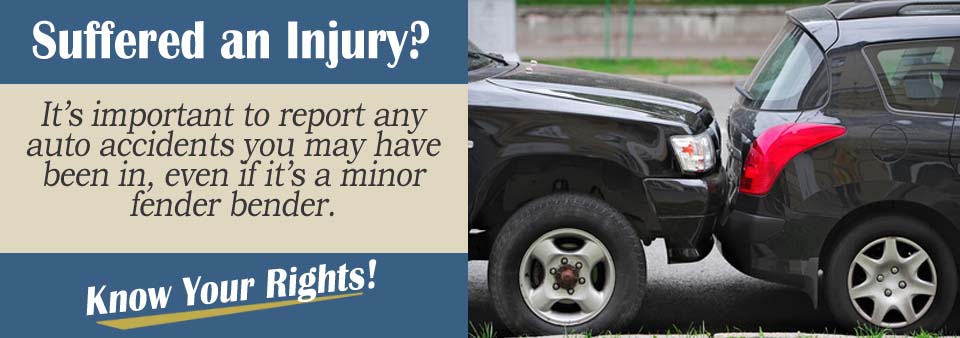Not all accidents involve enormous amounts of damages. Often, you find yourself involved in what is more commonly known as a fender bender. These types of accidents are considered those that involve minimal amount of damage, usually under a certain amount.
Can you claim damages for these smaller accidents or is it best to just handle it outside of insurance? Like so many things in the law, it depends on the specific facts and circumstances of your case.
We asked lawyer Alaina Sullivan about these types of accidents and your options for handling them. Here's her take on this situation:
Always Report Your Accident
It is always recommended that you file a report and claim for your accident, even if you believe you are below the deductible amount in your policy.
The reason for this you never know just how bad the damages are until later when professionals check out your vehicle, and you many times may have no idea about any injuries you sustained because of the accident.
If your adrenaline is going because of what happened, you may feel perfectly fine after the accident, but that feeling could very easily change once all is said and done. It is recommended you file a claim so that you are covered should you have high expenses later because of the accident.
Besides, many states require accidents to be reported if an injury is involved.

Why Do Some People Not Report?
It happens a lot more than most people realize. The drivers involved in the car accident will immediately do a cursory view of the damage done, and if it does not appear to be significant, they may just end up exchanging information and saying they will settle this outside of insurance.
Many drivers fear their insurance rates will spike after reporting an accident. Others would just rather work things out without involving their insurance companies. Regardless of the reasons, it is not recommended you avoid filing a claim.
Requirements to Report by Insurance Company
Every automobile insurance policy does contain a clause that requires policyholders to report any accident in which they are involved. If your insurance company discovers you did not report an accident, you could face some monetary penalties later.
But How Can They Find Out?
Just because you and the other driver agreed to not file a claim, once you have given the other person your insurance information, it does not mean that the driver will not be able to file a later insurance claim due to damage discovered later.
It is often hard to truly evaluate the extent of damages until you take the car in to have it inspected. If more significant property damage is discovered, that driver is completely within his or her rights to file a claim.
If your insurance company gets wind of the fact you never filed a claim, they may deny anything you file because of your disregard of the policy’s rules.
What Do I Do?
Once the accident happens, you should immediately exchange contact information and insurance information of the other driver.
If the other driver refuses to cooperate, it is recommended that you request police involvement at the scene of the accident to help you get information on the accident.
One Car Accident
It may not make sense to file an insurance claim if the car accident only involve your vehicle, on your own property with no injuries other than damage to your own property.
If you backed into your garage or knocked out your mailbox with your car, you do not have a dispute with anyone else and have no one to argue with about the cost of repairs.
In these types of situations, it is best to just pay for the damage out of pocket.
Contact an Attorney Today
A licensed personal injury attorney will be able to evaluate your case and determine if you have a claim against the other party’s insurance company.
You should speak with a personal injury attorney in your area today for the best chance of receiving the compensation you need to pay for:
- Medical bills
- Auto body bills
- Lost wages
- Pain and suffering